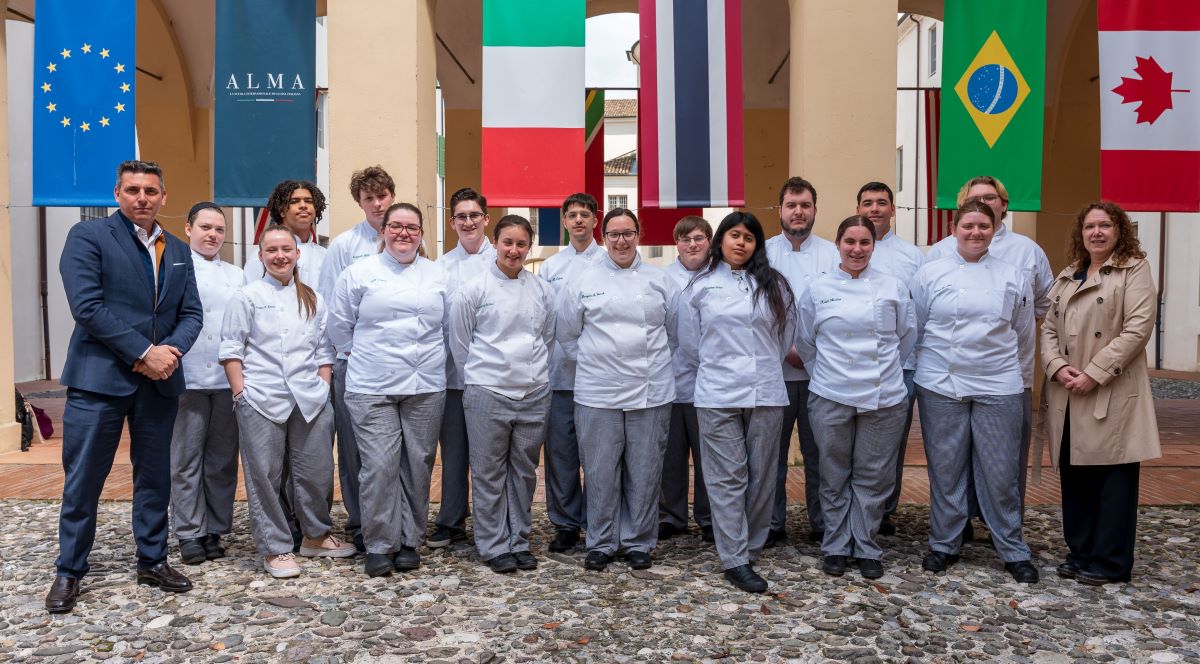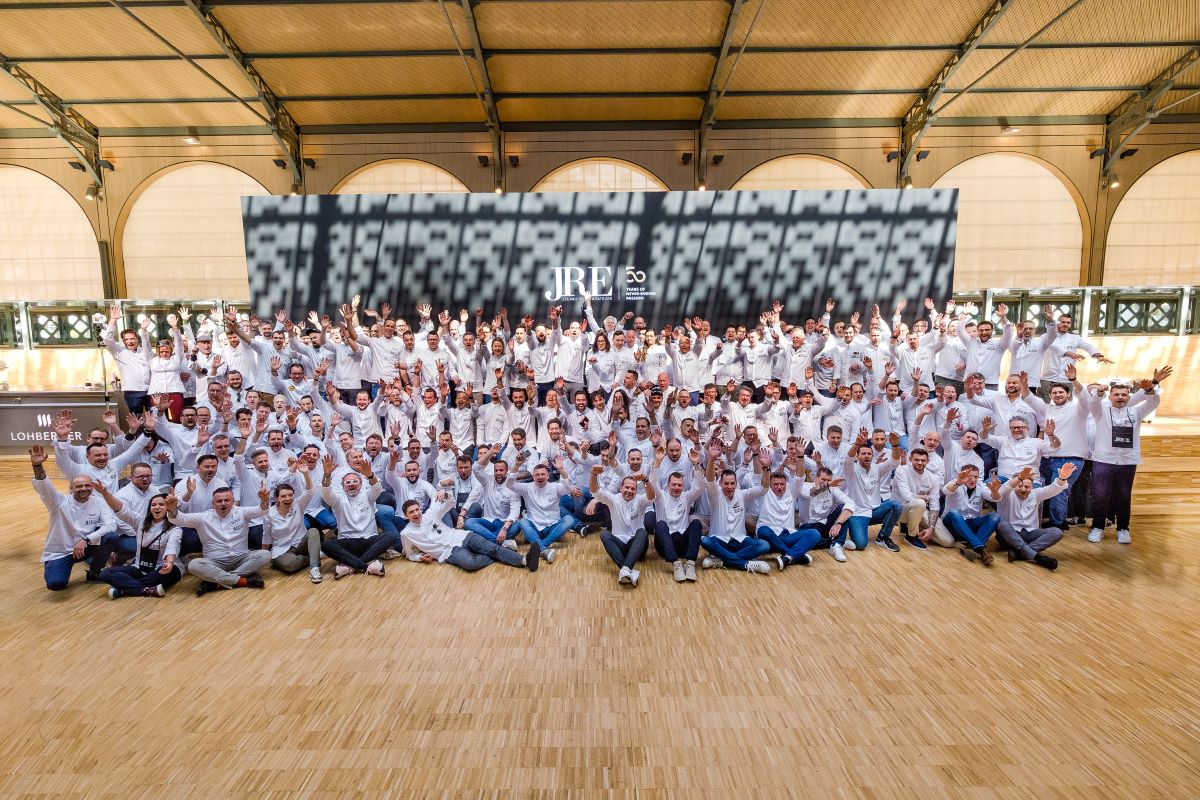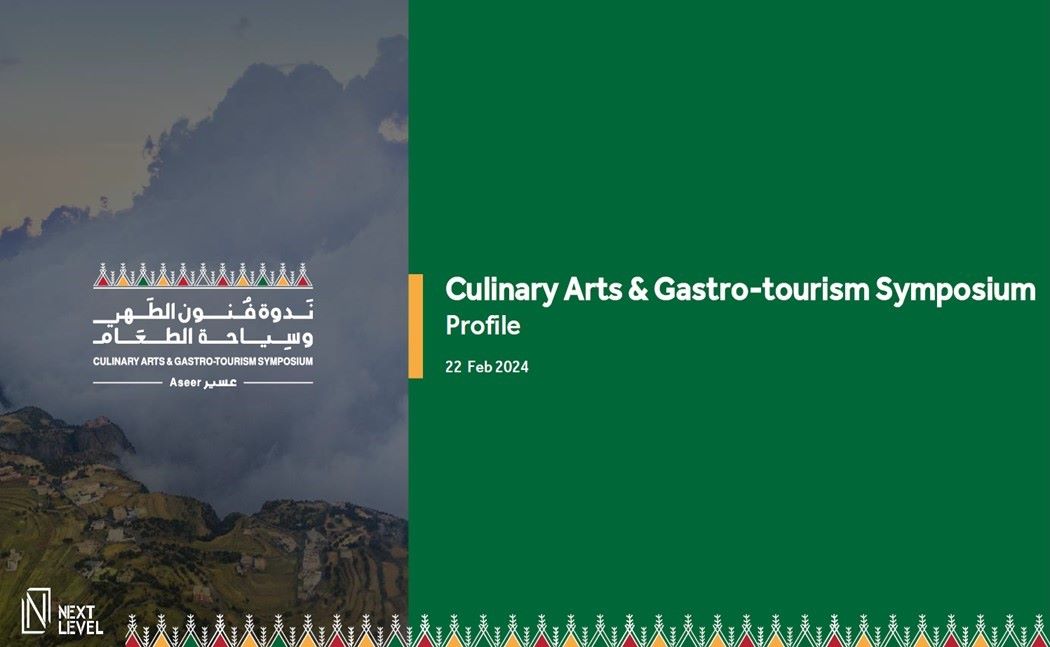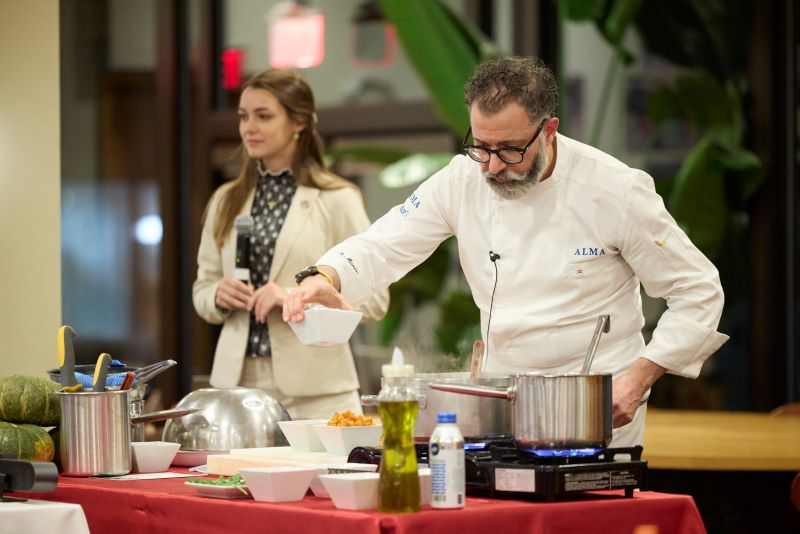
ALMA at the Harvard T.H. Chan School of Public Health

(Photo credits: Kent Dayton, HSPH Photographer)
Not just a school and not just culinary arts: ALMA, the high education center created to train chefs and pastry chefs and now grown to cover in all areas of Hospitality, is increasingly identified, both in Italy and abroad, as a gastronomic and cultural hub, as a centre of study and research where food is the expression and translation of concepts such as sustainability, nutrition and health. Thanks to active academic collaborations and the involvement of the Colorno School in European projects aimed at creating culinary figures aware of their role in climate change, ALMA once again confirms itself as an authoritative voice and point of reference for those institutional and educational contexts in which the culture of food broadens its meaning, embracing areas such as medicine and public health.
This is the context of the Masterclass that ALMA held a few days ago at the Harvard T.H. Chan School of Public Health, in Massachusetts, just a few hours after the lesson held at the Culinary Institute of America, coordinated by Parma Alimentare and in collaboration with the Parma UNESCO Creative City of Gastronomy Foundation. On that occasion ALMA brought the contribution of its Chef Ambassadors Antonio De Ieso and Michele Casadei Massari, for a lesson on some typical dishes of our tradition, accompanied by Eugenio Perrier of the Parmigiano Reggiano Consortium and Jason Stemm of the Prosciutto di Parma Consortium. The narrative support of Fondazione Parma UNESCO Creative City of Gastronomy, the organisation that encompasses all 6 supply chains of the Parma Food Valley, was added to the story of these, probably the most representative products of the Parma territory, which not only included the products in the masterclass, but also all the specialities of the Parma supply chains of excellence, from pasta to tomatoes, from anchovies to milk.
The aim of the Harvard talk, on the other hand, was to demonstrate how any gastronomic event, be it an aperitif or an appetiser, can become an opportunity to create healthy and sustainable recipes, instrumental in reducing people’s risk of cancer and environmental impact.
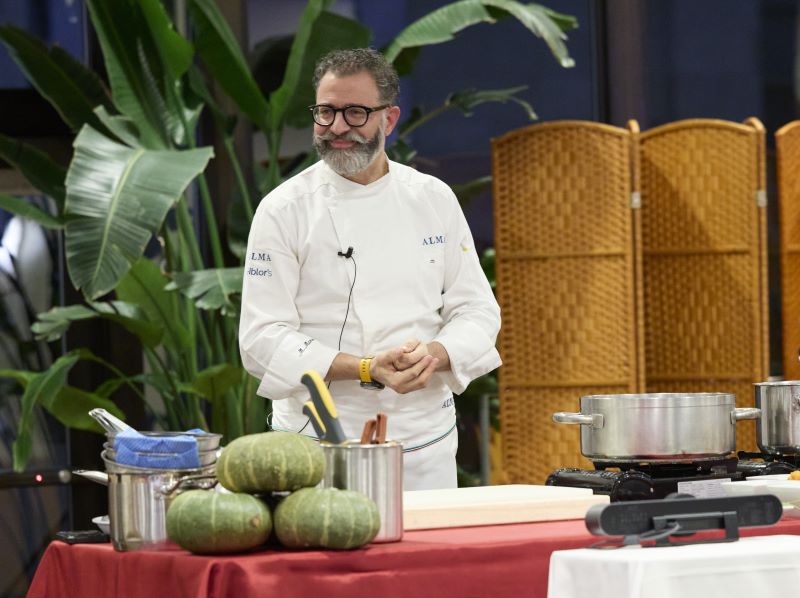

Chef Mario Marini, ALMA Ambassador, explained the techniques and secrets of these preparations. He showed how to prepare an orzotto with crispy chickpeas and toasted almonds, served inside a delica pumpkin. He was joined by Willa Van Nostrand, Rhode Island mixologist and creator of ‘garden-to-glass’ gastronomic experiences, who prepared the Orchard Elixir cocktail, based on apple cider, lemon juice, maple syrup, sparkling water and fresh herbs.
Their proposals, as well as taking into account flavours, fragrances and colours, sought to translate the cancer prevention guidelines drawn up by the HSPH and the health and sustainability guidelines developed in recent months by ALMA itself in collaboration with UEFA.

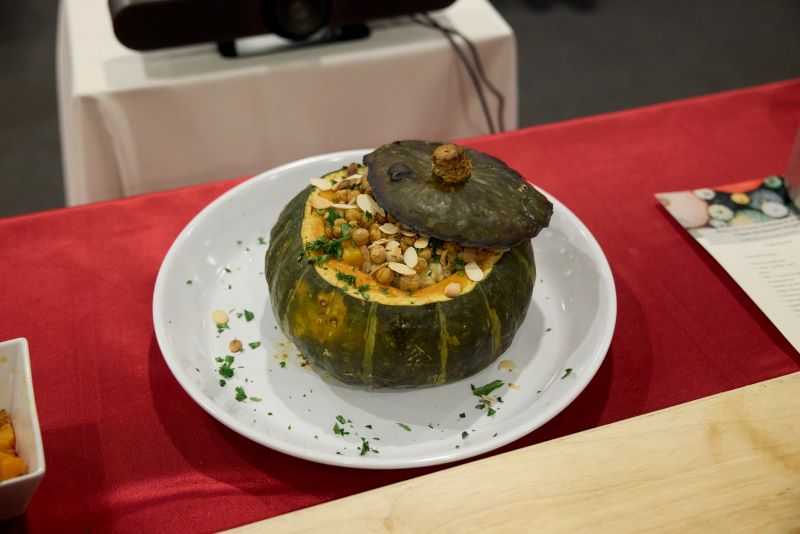
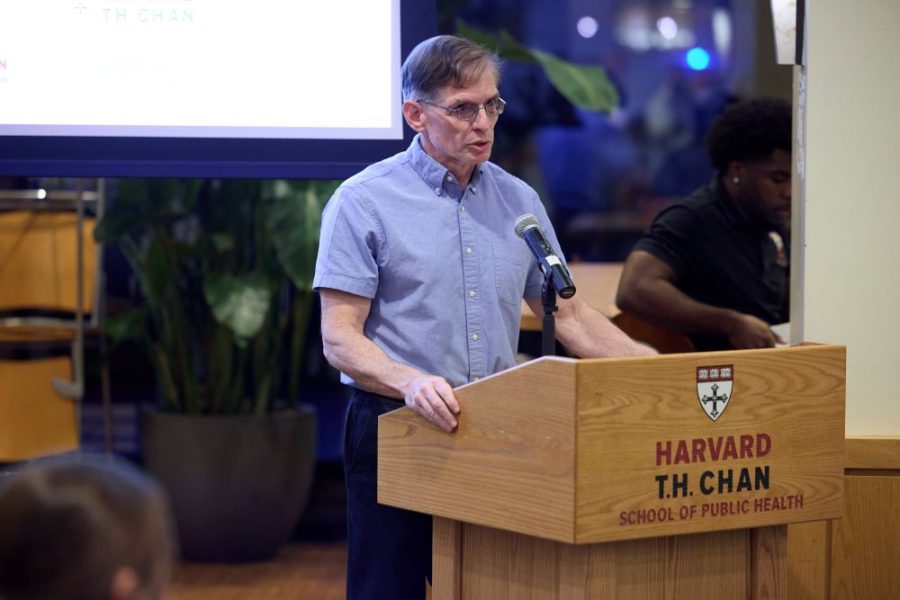
“Several aspects of diet are important for cancer prevention” explains Edward Giovannucci, Professor of Nutrition and Epidemiology at HSPH, who spoke at the masterclass. “Firstly, we need to avoid processed foods high in saturated fats, refined carbohydrates and sugars, which contribute to weight gain, and reduce the amount of red and processed meat, which is harmful for cancer. It is better to prefer fresh fruit, vegetables and whole grains, which contain anti-cancer compounds, including fibre. Italy’s regional diets can provide a model of fresh, healthy and highly palatable foods“. However, there are still many challenges to be faced: “Firstly,” Giovannucci continues, “better education is needed. Many people tend to have a fatalistic attitude towards cancer. As for dietary causes, many focus on relatively minor aspects, such as artificial sweeteners, but ignore more important ones such as obesity and excess alcohol. Many people are aware of the link between poor diets, obesity and diabetes, yet diabetes rates are on the rise. Why? Because habits are difficult to change. People must be exposed to healthy diets and want to consume them”.
Opening the meeting and explaining its purpose was Susan Legere, senior programme manager of the Zhu Family Center for Global Cancer Prevention, Harvard T.H.’s interdisciplinary Centre for Global Cancer Prevention. Dedicated to education and research along the entire cancer pathway, from prevention to screening to post-disease monitoring, this Centre of Excellence has always invested in training the next generation of researchers, establishing multidisciplinary and multi-institutional groups to discuss issues, identify priorities, and create partnerships among researchers, physicians, mentors, pharmaceutical companies, academic collaborators, philanthropists, technology companies, and innovators, and accelerate advances in the field and optimise treatment pathways.
The satisfaction and pride of being called upon to speak at such a prestigious venue was evident in the words of Graceanne LaCombe, ALMA’s US relations manager, who during the meeting illustrated not only the reality of the school but also the sustainability projects it has been carrying out in recent years, including, as mentioned, the Guidelines drawn up in collaboration with UEFA and the European LIFE Climate Smart Chefs project.
Other sponsors of the event included the Department of Nutrition, the Thich Nhat Hanh Centre for Mindfulness in Public Health, the Harvard Sustainability Office and the Ecoopportunity Green Team.
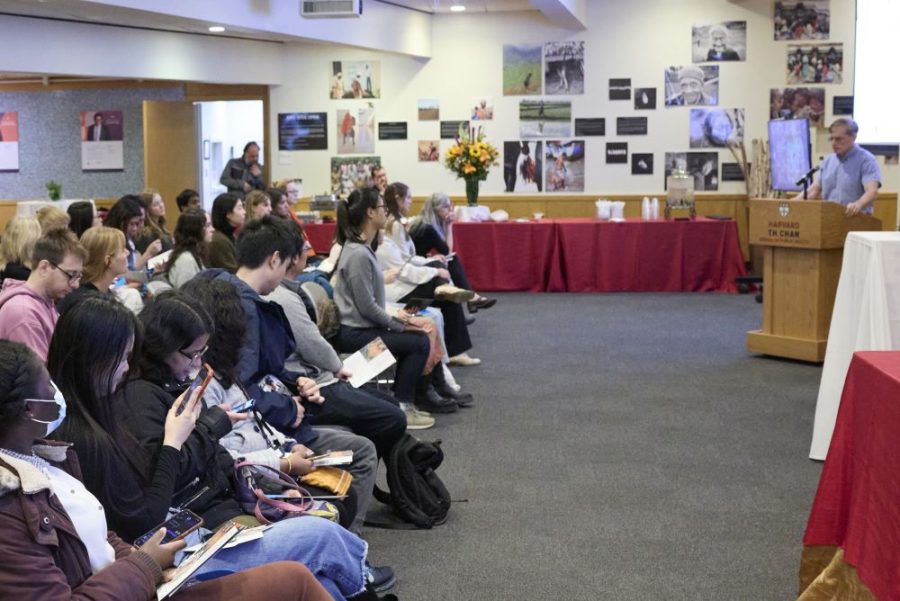
Harvard T.H. Chan School of Public Health
Founded in 1913 as a public health training programme from a branch of MIT, from which it separated in 1946 to become an independent institution, the Harvard T.H. Chan School of Public Health has its roots in the public health activism of the early 20th century, an era marked by numerous social reforms.
At its head as dean is the Italian-American Andrea Baccarelli, who in Italy holds a PhD from the University of Perugia, a master’s degree in epidemiology from the University of Turin and a PhD from the University of Milan. Dedicated in his long career as a researcher to the study of molecular mechanisms that cause human disease in relation to certain numerous environmental exposures, Beccarelli at the Harvard Chan School was also an associate professor from 2010 to 2016.
Graduates coming out of the Harvard Chan School are now globally established references and renowned experts in almost all aspects of public health. Among other areas of research, the one on food and nutrition is investigating which fats are the most damaging to health, demonstrating the impact of diet on coronary heart disease and diabetes, and identifying strong links between diet, exercise and cancer.

